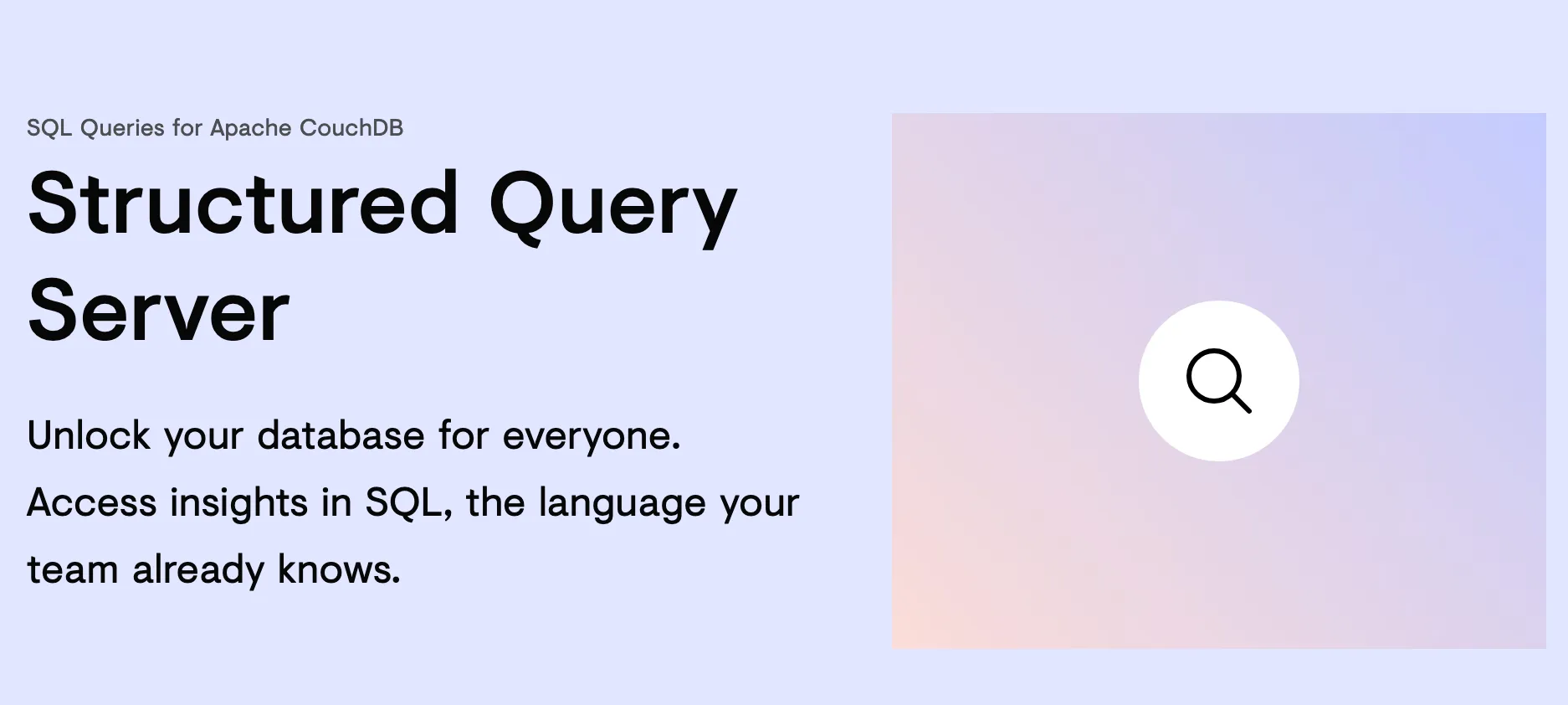All Product Blog Posts
How CouchDB Prevents Data Corruption: fsync posted Wednesday, February 26, 2025 by The Neighbourhoodie Team Tip Product CouchDB Data
Programming can be exciting when the underlying fundamentals you’ve been operating under suddenly come into question. Especially when it comes to safely storing data. This is a story of how the CouchDB developers had a couple of hours of excitement making sure their fundamentals were solid (and your data was safe).
CouchDB Data Modelling: Prefer Smaller Attachments posted Wednesday, February 19, 2025 by The Neighbourhoodie Team Tip Product CouchDB
We’ve already shared a CouchDB data modelling tip about preferring smaller docs. This one is about smaller attachments.
CouchDB Data Modelling: Prefer Smaller Documents posted Thursday, February 13, 2025 by The Neighbourhoodie Team Tip Product CouchDB
CouchDB document design has a big impact on database performance — so how do you get it right?
Always Compact posted Wednesday, January 29, 2025 by The Neighbourhoodie Team Tip Product CouchDB
CouchDB’s revision control system can sometimes lead to the assumption that CouchDB works like git, where you can access all versions of a document for eternity. Though it’s tempting, it’s inaccurate, and knowing why is important for understanding database health.
How CouchDB Prevents Data Corruption: Checksums posted Wednesday, January 22, 2025 by The Neighbourhoodie Team Tip Product CouchDB Data
CouchDB is your data’s safe place. It does everything in its power not to accidentally lose any of your data. However, sometimes circumstances are not in CouchDB’s power.
One of those circumstances is disk corruption.
Consider Using nanoid posted Thursday, January 9, 2025 by The Neighbourhoodie Team Tip Product CouchDB
CouchDB automatically assigns each piece of your data an unmistakable tag, called a UUID, to avoid conflicts in distributed systems even before syncing. If you assign these yourself, nanoid for JavaScript is the smaller, faster tool to get it done with CouchDB and PouchDB.
Full-text Search and Faceted Querying with CouchDB posted Wednesday, November 27, 2024 by The Neighbourhoodie CouchDB Team Tip Product CouchDB
CouchDB stores your JSON data naturally in documents. It also gives you multiple mechanisms for querying that data:
Celebrate 10 Years with Us — Get SQS for Free! posted Thursday, November 21, 2024 by The Neighbourhoodie CouchDB Team Announcement News Product

We’re celebrating our 10th birthday by giving away five (5) licenses for Structured Query Server (SQS). SQS is the tool that gives more teammates access to your CouchDB data in SQL. Here’s everything you need to know about grabbing your license.
PouchDB Tip: Use CouchDB as an API posted Wednesday, October 16, 2024 by The Neighbourhoodie Team Tip Product CouchDB
PouchDB and CouchDB used together are a powerful combination and one of the very few technologies that allow you to build truly robust offline web applications.
How CouchDB Prevents Data Corruption: Append-Only Database Files posted Wednesday, September 18, 2024 by The Neighbourhoodie Team Tip Product CouchDB Data
CouchDB takes keeping your safe very seriously. It does everything in its power not to accidentally lose any of your data. Let’s look at one of the things that keep your data safe: append-only database files.
Avoid Concurrent Writes to Document Properties posted Friday, September 6, 2024 by The Neighbourhoodie Team Tip Product CouchDB
Designing your data for use with CouchDB is usually pretty straightforward. Your application will make use of certain objects or data records like persons, events, tasks, etc. When thinking about storing these in CouchDB, you usually store an individual instance of each of those objects or data records in an individual CouchDB document:
All Views in One Design Doc posted Wednesday, August 28, 2024 by The Neighbourhoodie Team Tip Product CouchDB
CouchDB organises the definitions for all secondary indexes in a database in design documents. This is true for JavaScript Views, Erlang Views, Lucene text indexes, and Mango Queries.
How to Store Dates in CouchDB posted Wednesday, August 14, 2024 by The Neighbourhoodie Team Tip Product CouchDB
CouchDB uses JSON as a data format, and JSON does not have a built-in way to represent dates. But dates are commonly used when building applications for all sorts of things, and there are ways to store them in CouchDB, so how is that done?
Data Format Compatibility posted Friday, August 2, 2024 by The Neighbourhoodie Team Tip Product CouchDB Data
When storing data in CouchDB, you send JSON in one form or another. When you retrieve data from CouchDB it is also in the JSON format.
Why Does CouchDB Require an Admin Account to Start? posted Wednesday, July 24, 2024 by The Neighbourhoodie Team Tip Product CouchDB
In CouchDB 1.x, one of our [the CouchDB developers’] overarching goals was to create a database that is easy to use. We spent many years refining the CouchDB REST API to make it as easy and as convenient as possible, so people don’t get turned away from using CouchDB by how hard it is to use.
Introducing Structured Query Server posted Tuesday, March 5, 2024 by The Neighbourhoodie Team Product Announcement News
In the vast realm of databases, two types have consistently marked their presence – the traditional SQL databases and the more flexible NoSQL counterparts. SQL databases, with their structured nature, have been serving businesses for decades. On the other hand, NoSQL databases, notably Apache CouchDB, have catered to the needs of modern web applications and their semi-structured data requirements.
While both have their distinct strengths, there’s often been a wish amongst users and developers for something that combines the two — a tool that brings together the scalability of NoSQL with the precise querying of SQL. In response to this need, Neighbourhoodie presents the Structured Query Server. Designed with feedback from the developer community, this addition aims to address common challenges faced by CouchDB users and offer enhanced capabilities for data analysts.
This blog is going show the features of our Structured Query Server for Apache CouchDB, its application, and how it harmonise the two different approaches.